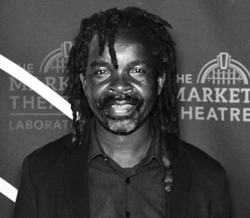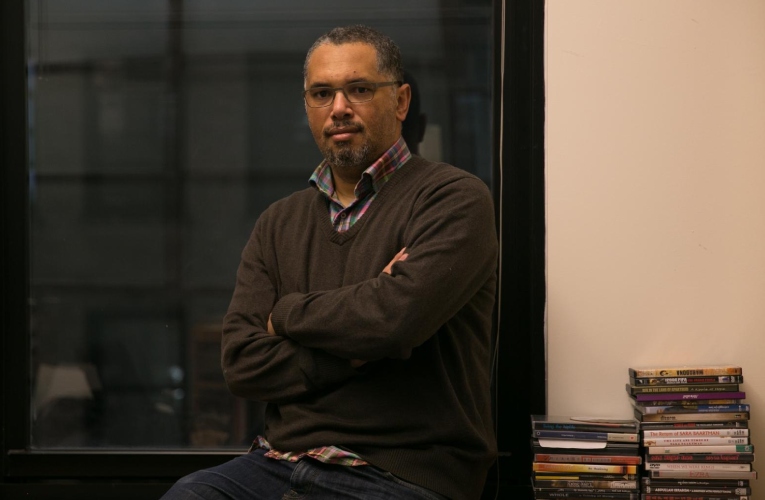South African born academic Sean Jacobs appointed editor of influential American publication on international affairs New Context
By Edward Tsumele, CITYLIFE/ARTS Editor

A publication that focuses on international relations, whose content is produced by students at a top American university, and whose editor is South African born academic and writer Sean Jacobs has been launched. Rather the title whose print version was called Context, has now resurfaced as New Context, replacing the ill-fated Context which folded in 2009 due to the advent of the evolution and revolution of digital media that became unkind to traditional media models, such as printed newspapers.
Now a completely online publication, New Context is a monthly magazine which is essentially produced by writers attached to the University’s Faculty, where Jacobs works as a faculty member holding the position of associate professor. He is also editor of the well-respected Pan African publication Africa is a country.
Jacobs explains the emergence of this publication on the international police scene.
“In 2005, the Graduate Program of International Affairs at The New School had only been running for four years. Founded in 2001 by Michael Cohen, a World Bank urban expert who had worked in over fifty countries, the program wanted to challenge orthodoxies in international relations about global politics. Among the faculty Mike had attracted to the school was Nina Khrushcheva, a propaganda and media politics expert. By 2005, GPIA, as the program soon became known, decided it would be good if its students created their own publication, “conceived, edited and produced solely by GPIA students.”
The result was Contexts Magazine. It would come out annually and in print. On the second page of the first issue (in 2005), Nina, who served as the faculty advisor, wrote that the goal wasn’t merely to copy other graduate programs and schools and have a publication, but “also to address the most challenging and most current topics of international affairs.” The first issue included short essays on the civil war in Kosovo, blogging, the politics of truth in the Global South, images from a departmental student photo contest, and essays from Aceh (Indonesia), Meknes (Morocco), and Ireland (the student editor, Denis Fitzgerald, was from there).
There would be four more annual print issues. In 2009, I arrived at GPIA. I was promptly named faculty advisor to that academic year’s issue, which came out in 2010. It was also the last time Contexts came out. We had become victims of the internet and rising printing costs. In the intervening years, as social media changed how most of us consumed and interacted with international affairs, there were a few attempts to revive Contexts—until now.
This new version of Contexts, now known as The New Context, has a more ambitious goal. The New Context aims to continue Nina’s mission, but with a broader focus on extending the conversation to new debates on decolonizing international institutions and global governance systems. I will serve as editor and we will publish monthly. We will both commission pieces and accept submissions. Articles will be chosen on the basis of thematic fit and quality. Writers will have to be willing to accept edits.

We also have a fresh new look, thanks to the vision of our designer, Nirkhunan Govindan Kuppuram. This first issue features a mix of short essays from second-year GPIA students, including one student graduating this December (Rebecca Snyder), along with contributions from new first-years and students from other divisions, including NSSR and Parsons, who have enjoyed taking courses in GPIA. It also introduces our new series, “Accidental IR Theorists,” with the first subject being the Argentine footballer, Diego Maradona.
It is worth ending this introduction to The New Context and its first issue with what JK Fowler, the student editor of the 2010 CONTEXTS print issue, wrote in that issue: “To walk to the corner of West 14th Street and 5th Avenue in New York City is to weave through a network of hundreds of relations, interactions, and intersections, simultaneously local and international. It is, in the end, a context that we live, work, and study within, our vision of which is limited only by our willingness to see.,” writes Jacobs in the new context’s first editorial.
The first issue covers a wide range of themes and public life, and the contributors to this issues Niyati Pendekanti, Jacobs, Jasmine Harmston, Mara LevINikki Veltkamp, Nolan Young
Rebecca Snyder, Soumya Karwa, Emma Jehle and Marianna Giacobbe Goldberg.
The publication’s focus areas are culture, politics and international affairs.
Some of the regular features that are part of this publication, is a series which kicked off in the new issue is curiously titled Accidental International Affairs Theorist with a disclaimer that suggests that the content of the series should not be taken literally: The accidental international affairs theorist in this first series if none other than the soccer legend Diego Maradona of Argentine. The piece that theorises Maradona’s views on international politics is written by Jacobs himself, who is
Sean Jacobs is a professor and director of the Graduate Program in International affairs at The New School.
“What would a Maradona theory of international affairs look like?
The closest he came to governing anything political and implementing his ideas about the world was when Venezuela proposed – a nonstarter – that he lead FIFA. In academia, efforts have been made to constitute “Maradonian Studies.”
Maradona, who died in 2020, saw the world as divided between powerful elites (the IMF and the World Bank, the US, soccer federation FIFA) and the marginalized (the Global South, Latin America). In Emil Kusturica’s 2005 film about Maradona’s life, we see him at the front of resistance to US-backed free trade alongside Latin America’s leftist leaders (Hugo Chavez and Evo Morales especially), advocating for economic independence. Months before his death, he promoted a wealth tax in Argentina,” writes Jacobs.










